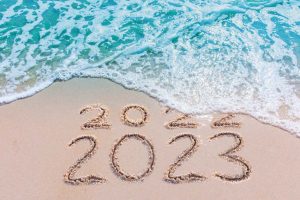Homeschooling parents! Here is an opportunity to educate your children about Marcus Garvey. You can integrate this information into your lessons involving race, culture, Jamaica, and African American studies.

David McFadden writes about how Jamaica is turning to black nationalist leader Marcus Garvey to inspire youth on the island. Garvey, who inspired millions of followers worldwide with messages of black pride and self-reliance, is being resurrected in a new mandatory civics program in schools across this predominantly black country of 2.8 million people. Struggling with a chronically stagnant economy and an excessively high crime rate, Jamaica’s use of Garvey’s thought will hopefully instill in the students a set of positive values and attitudes, as well as a stronger sense of identity and empowerment. Here are excerpts of McFadden’s article:
Students from kindergarten through high school are supposed to learn values such as self-esteem, respect for others and personal responsibility by studying Garvey, whom Martin Luther King Jr. called the “first man on a mass scale and level to give Negroes a sense of dignity and destiny.” [. . .] The program is a major rethinking of Garvey’s legacy in his Caribbean homeland. He was the first person named a national hero following independence in 1962, and the government put his likeness on coins. But it had declined repeated calls to use his teachings in schools, where history is not a required subject.
“The teaching of Garveyism in schools is something that politicians of all stripes have shied away from partly because of their own intellectual ignorance and partly because they don’t know what to make of this complex subject,” said Robert Hill, a Garvey expert who is professor emeritus at the University of California, Los Angeles. But Jamaicans take great pride in the achievements of a native son who created an international movement. “We want all our children to believe they are important to what becomes of this country. Through Marcus Garvey, we see what it means … to admit to no stumbling block that we cannot overcome,” said Amina Blackwood Meeks, the Ministry of Education’s culture director who led efforts to draft the Garvey-infused civics program.
[. . .] Born nearly 50 years after the abolition of slavery in Jamaica, Garvey founded the United Negro Improvement Association in 1914 on the island, and then built it into a mass movement in New York from 1919 to 1927. He established a network of “Liberty Halls” as venues for political debate, theater and scholarship around black themes, raising awareness of African achievements and calling for economic empowerment to circumvent racism. From his Harlem base, Garvey urged people find pride in their African history, and assured the descendants of slaves that there were no limitations to what they could accomplish. His Pan-African philosophy urged blacks to return to the continent of their ancestors and he launched the Black Star Line, a fleet of steamships intended to take them there.
[. . .] But in the early decades of the 20th century, when segregation was deeply implanted in the United States and when European colonialism still stretched around the world, Garvey’s words also inspired civil rights figures in America, political leaders in Africa and the Rastafarian movement in Jamaica.
It’s the uplifting and ambitious aspects of Garvey’s life that educators hope will inspire youngsters in modern-day Jamaica, where times are tough for many. [. . .] “We have to use all tools and strategies at our disposal to tell our children and our people in general that, as Garvey said, the black skin is not a badge of shame, but rather a symbol of national greatness,” said Verene A. Shepherd, director of the Institute for Gender and Development Studies at Jamaica’s University of the West Indies. “If Jamaicans from very young are imbued with this kind of thinking, we will see the benefits in years to come.”
For full article, see http://www.tnj.com/news/african-and-caribbean/jamaica-introduces-garveyism-classrooms
Read more http://repeatingislands.com/2012/09/26/jamaica-introduces-garveyism-in-classrooms/



